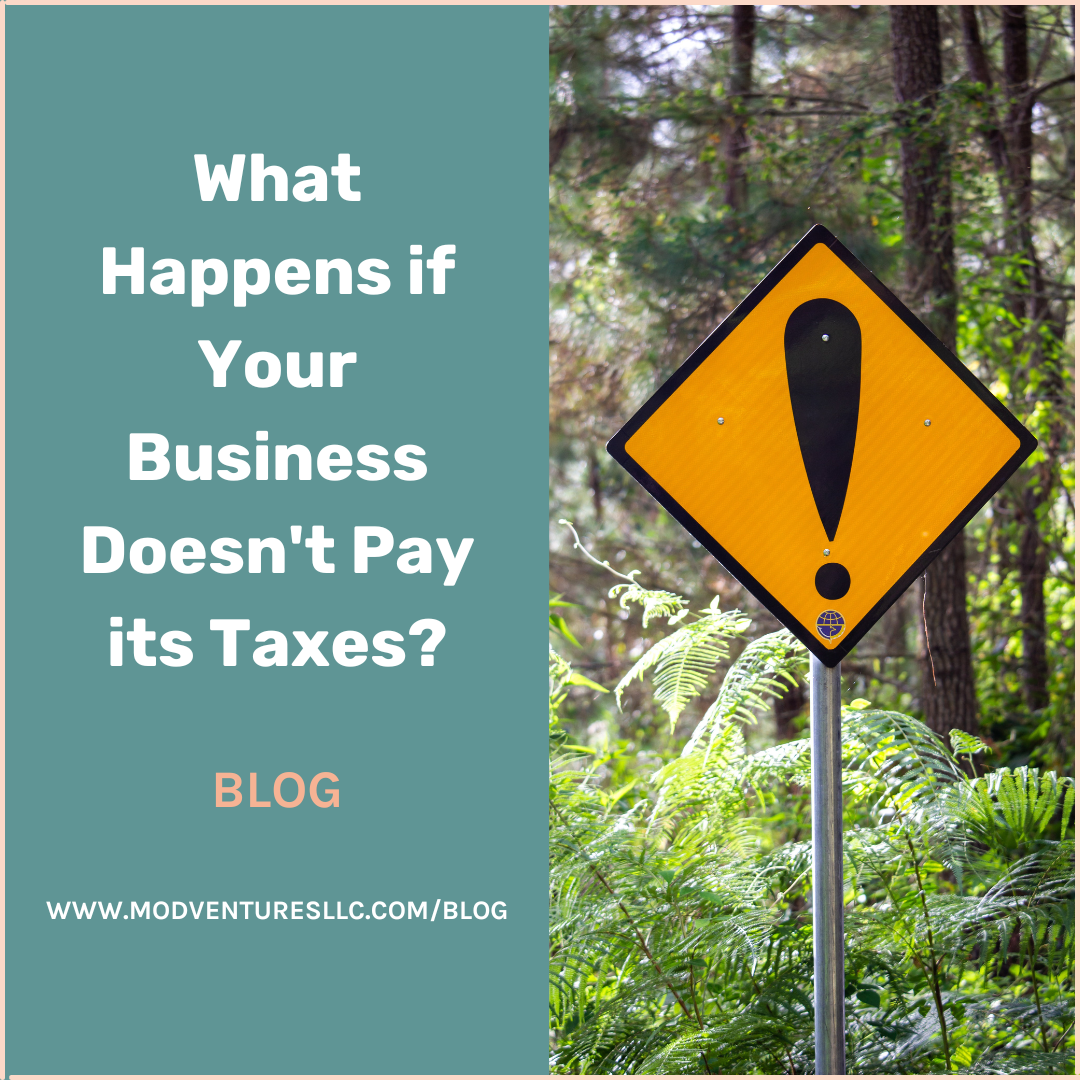By: Gabrielle Luoma CPA, CGMA
By: Gabrielle Luoma CPA, CGMA
Unpaid business taxes can be a business owner’s worst nightmare – and have dire consequences on your company thanks to the IRS and federal government. But, what happens if your business doesn’t pay its taxes? What does that mean to you, as a business owner, and to the IRS, the collector?
If you’re a new business owner, one that hasn’t quite invested in establishing yourbusiness as an LLC, you might have received the misleading information not to report your income, particularly if you didn’t make much. That’ll depend on exactly what your specific earnings were – although you’ll always want to report any income you have throughout the year to ensure you’re paying accurate taxes.
As an established business, you’re facing the biggest challenges and risks when you fail to report your income or pay your taxes – one that can result in losing anything that could be considered valuable in your business.
How Long Do You Have To Pay Your Taxes Each Year?
As a business owner, you’re obligated to pay your business taxes throughout the year instead of at the end of the year. This comes in the form of estimated tax payments based on your income – including income from self-employment, interest, and dividends. If you don’t pay your income taxes through withholding or estimated tax payments, you can be charged a penalty by the IRS.
Estimated taxes are due at the end of each quarter throughout the year. Each quarter or period has a specific payment due date. If you’re working with an experienced accountant, they’ll ensure your estimated tax payments are accurate and paid in a timely manner – if not, your typical deadlines are:
- April 15th for Quarter 1
- June 15th for Quarter 2
- September 15th for Quarter 3
- January 15th of the following year for Quarter 4
It’s important to check on the date each year as it may change. You can find a full breakdown of your estimated tax payments here.
What Happens When You Have Overdue, Unpaid Taxes as a Business Owner?
When you don’t pay your business taxes, you WILL get a letter from the IRS. Typically, the IRS will send a notice in the mail that highlights the due date, 30 to 60 days, for you to respond to the notice. After the notice, it’s important to respond and pay the overdue amount. If you ignore the letter, you could face additional fees, penalties, or even a visit from an IRS agent.
Potential consequences of not paying your business taxes could include:
Additional Penalties and Fees
If your business fails to file or pay taxes, including if you do not pay the full amount owed, then you may be subject to a penalty fee. A penalty fee is typically 10-15% and is applied to every month that your payment is delinquent – this penalty fee does cap at 25%. Additionally, you’ll need to pay a late fee of $134 and interest equal to the federal short-term rate plus an additional 3% in some cases.
Criminal Charges
If the IRS has determined that your business is not paying taxes in attempt to hide funds in a fraudulent way,the IRS may press charges. This is only for intentional criminal acts, and not unintentional neglect.
Property Seizure
While it may be unexpected, if you don’t pay your business’s taxes, the IRS may determine that the best way to proceed is to levy the assets of your business – and seize your company equipment or property. This includes cars, machinery, etc.
How Do I Make Sure My Taxes Are Paid on Time?
Depending on the size of your business, the easiest way to work on building a system to track your income, expenses, and track your payment due dates. If you’re a single-member LLC and do less than $500,000 per year, we recommend setting your business up in Quickbooks. If you have a larger business, we recommend working with an accountant or connecting with a virtual accounting and bookkeeping firm.
If you’re ready to get organized and ensure your taxes are paid on time, every time, connect with the MOD VENTURES LLC team today.
You May Also Love
CLOSE






